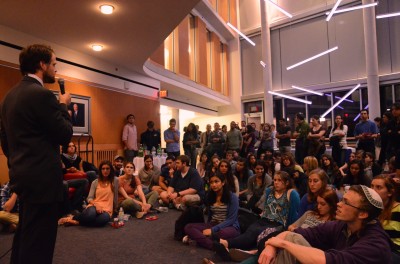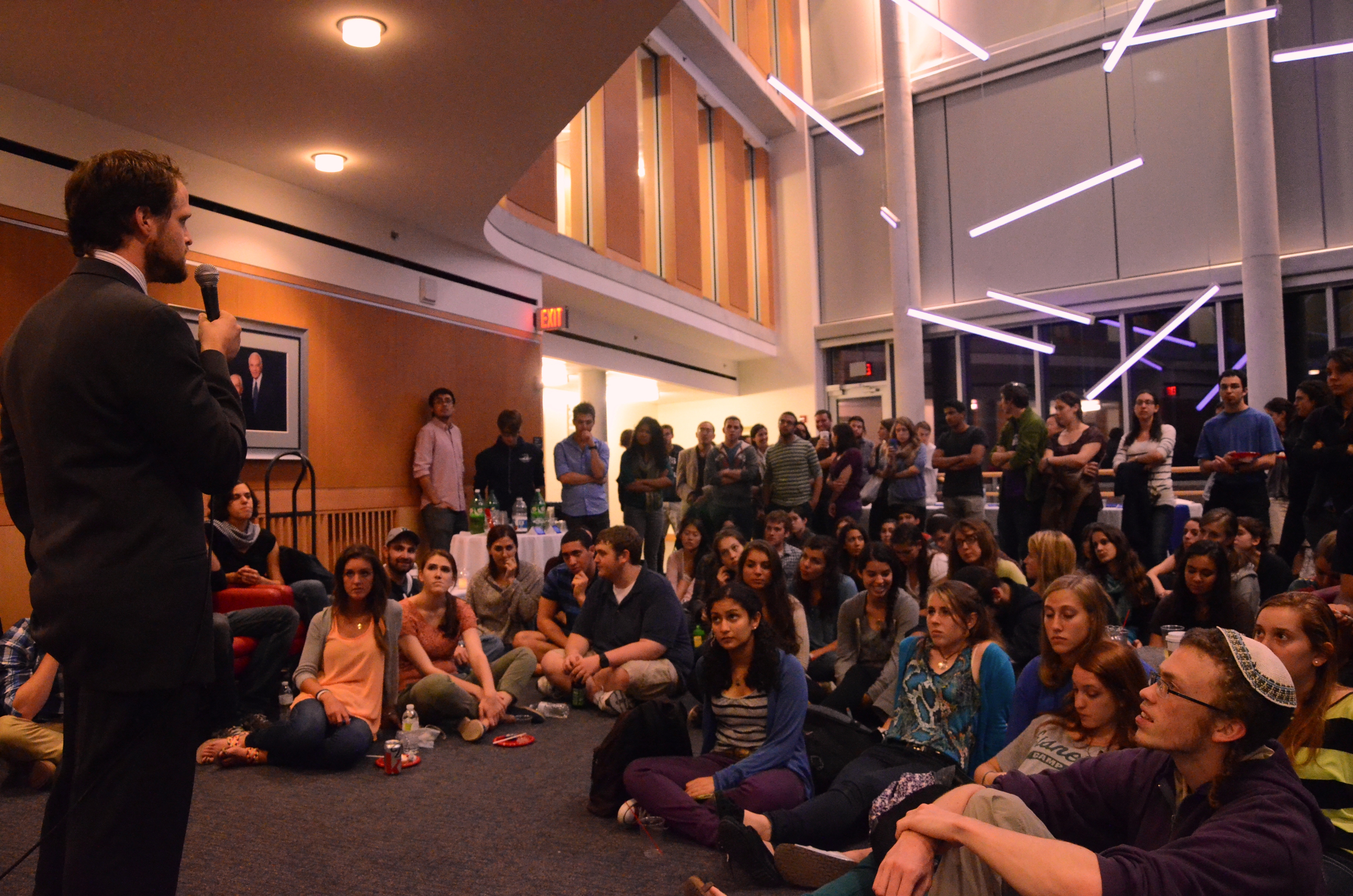
I have a confession to make: I’ve been cynical. While I love Israel deeply, studied abroad in Haifa, and study the Middle East academically, for the bulk of my college career I would not get involved with campus Israel-related activity. It was too polarized, too entrenched, and too disconnected from the nuanced and intellectual conversations I had in classes. In all honesty, it was just too painful.
Until this year, I’ve been a part of the illusive “student who went on birthright/took a gap year/studied abroad in Israel but does nothing Israel-related” statistic.
Although I attended some great, thought-provoking Israel-related events during my first three years at Brandeis, the walkouts, protests, and lingering tension are most cemented in my memory. Recently, it occurred to me that I not only avoided Israel activity on campus because it was frustrating, but also because most of our work is so rooted in the current situation that it doesn’t dare look ahead at what could be. From my experience, events that are forward-thinking and allow a space for students to express their ideas are the exception, not the norm.
Although fun, eating hummus and smoking hookah is not enough for students to relate to Israel. Campus Israel programming must reflect the creativity, ingenuity, and idealism of the students it aims to serve. For Israel activity to be truly effective, it needs to be engaging, increase literacy, and look toward the future of both the University and the State of Israel. A recent study found that 87% of young advocates believe there should be room for multiple perspectives about Israel. Clearly, I am not alone in desiring and demanding something better.
Not only do college students crave something better–the world requires it. At an event last year at Brandeis, Ghaith Al-Omari, Executive Director at the American Task Force on Palestine, and David Makovsky, Director of the Washington Institute for Near East Policy, said that college campuses are steps behind, not ahead, of the reality on the ground regarding Israel. College campuses have always been a bastion of new ideas and a unique opportunity for people with varying perspectives to not only learn from experts but from each other. Israel cannot be the exception. If we can’t have constructive conversations and generate the next big ideas relating to Israeli society and the future of Israel Diaspora relations on college campuses, where can we?
I’ve come to realize that if I care so deeply about both Israel and the caliber of Israel related discourse in the United States, I can’t be despondent. It is counter productive. For this reason, I am part of a new entirely student-led initiative at Brandeis that is tackling these issues head on: Brandeis Visions for Israel in an Evolving World (bVIEW).
bVIEW is the answer to my cynicism.
What started as an idea developed by a handful of American and Israeli students has developed into a large initiative that has already began to shape campus culture, build relationships, and engage roughly 200 students. We are creating a space for constructive discourse, and corresponding actions, that are unifying campus around our shared interest in Israeli society and desire for a better future in the Middle East.
During the second day of Operation Pillar of Defense, when students from across the United States were waging war on Facebook, 70 Brandeis students from diverse backgrounds listened to performances and shared their own stories about Israel and their relationship with Israel over homemade shakshuka. In small groups, we openly shared our frustrations and trepidations, and laughed over the many cultural differences between Israelis and Americans to break the tension. As I listened to a Saudi Arabian graduate student studying Hebrew and the president of our Zionist organization deliver monologues, I knew Brandeis was living up to its true potential when it mattered most.
bVIEW student leaders envision conversations that emphasize innovation, embrace diversity, empower students, and push us to look toward the future. At Brandeis, this is already happening. By bringing together thought-provoking speakers, experiential learning opportunities, and participant-driven discussions, we are transcending simplistic rhetoric and depolarizing discussions on campus. With our day long conference at Brandeis on Sunday, January 27th that is open to all university students, we are going to take the next steps to make this vision a lasting reality.
Don’t make my mistake and waste time being cynical. Because we don’t have the time to waste. We can no longer passively create visions for Israel without discussing them with people who will challenge us or taking steps to make them a reality. This year is an election year in Israel and the United States. It’s time when Israel, her neighbors, and the United States are at a crossroads. As students, we need to lead the charge to make sure our campuses are two steps ahead of reality, and compel others to catch up to us.

